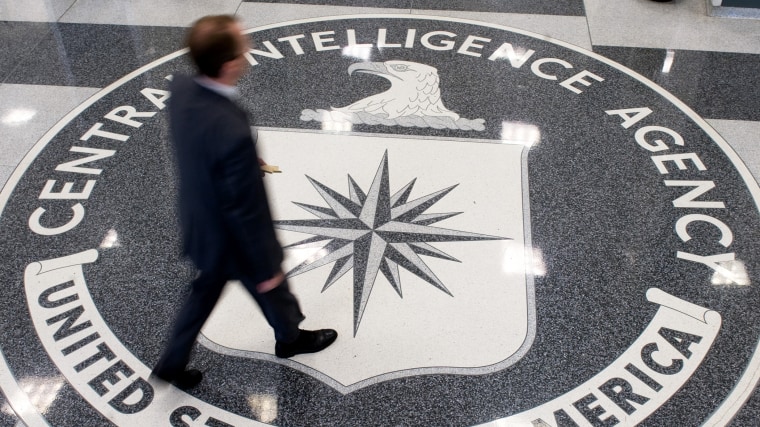There's a limited universe of national security officials who enjoy the enthusiastic support of congressional Democrats and Republicans. Sue Gordon, the principal deputy director of national intelligence, is one of them.
With this in mind, after Donald Trump parted ways with Director of National Intelligence Dan Coats, who made the mistake of saying true things to a president who didn't want to hear them, congressional leaders encouraged the White House to elevate his second in command. By some accounts, Coats personally urged the president to give Gordon the job, putting her in a position overseeing the U.S. intelligence agencies -- a task she was qualified and prepared to do.
Trump chose a different course.
Sue Gordon, a career CIA official who is serving as the principal deputy director of national intelligence, told the White House she would leave her job on Thursday after she learned she would be passed over as director of national intelligence.In a handwritten note to President Donald Trump, Gordon wrote: "Mr. President -- I offer this letter as an act of respect & patriotism, not preference. You should have your team. Godspeed, Sue."
The use of the phrase "not preference" left little doubt that Gordon's change in career plans was not altogether voluntary.
Soon after, the president announced -- via Twitter, naturally -- that Joseph Maguire, the current director of the National Counterterrorism Center, would serve as the acting director of national intelligence. As the Associated Press noted, Maguire had "a long and distinguished career in the military," though his background in intelligence work is limited.
Common sense suggests it might've been a good idea to keep someone like Sue Gordon around to assist with the transition between ODNI leaders, but Trump nevertheless showed her the door.
A Washington Post report added that the president "was reluctant to keep someone with whom he had never formed a close bond." Trump and his team also apparently "regarded her as a career official and consequently suspicious."
All of which helps reinforce the absurdity of the circumstances.
Coats was an experienced professional who enjoyed support, and who got on Trump's bad side for daring to stray from the White House's misguided script. The president soon after thought it'd be a good idea to nominate Rep. John Ratcliffe (R-Texas) to serve as director of national intelligence, despite his total lack of qualifications, despite his experience as a relentless partisan, and despite the fact that he'd lied about much of his relevant background.
When that fiasco ended in humiliating fashion, it seemed even more obvious that someone like Sue Gordon would provide steady, capable leadership at the Office of the Director of National Intelligence. But it was her experience and qualifications that led Trump to believe she was the wrong person for the job.
We know this in large part because the president just last week shared his perspective on the intelligence community, telling reporters he wants someone who's going to "rein in" intelligence agencies, which he insisted have "run amok."
In practical terms, Trump doesn't see his own country's intelligence professionals as sufficiently on board with his political plans, and that's a problem he intends to remedy.
Postscript: Bloomberg News reported in passing yesterday, "Administration officials also have discussed former Republican Representative Pete Hoekstra for the position, according to two people familiar with the matter."
I'll make more of a fuss about this if Hoekstra, who used to serve as the chairman of the House Intelligence Committee and who's currently serving as the U.S. ambassador to the Netherlands, gets nominated. But for now, I'll just note that the former Michigan congressman used to leak sensitive information like a sieve during his time on Capitol Hill. Nominating him to oversee U.S. intelligence agencies strikes me as a hilariously bad idea.
